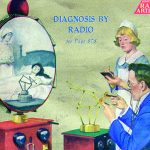GPs worried about their obligations amid the virus crisis are advised they should consult their medical defence organisation
As supplies of testing kits and PPE run low, the RACGP has advised GPs to contact their medical defence organisations for advice on their obligations to patients who seek testing and treatment for possible COVID-19.
“The RACGP understands the pressures faced by our members with patients being directed to general practices for assessment and testing during the current COVID-19 situation,” its website says.
“We know GPs have concerns regarding their obligations to patient care. For specific advice you will need to contact your medical defence organisation.”
Avant Mutual’s extensive COVID-19 FAQ covers practice and practitioner indemnity, patient appointments, testing and treatment and workplace and staff.
Patients cannot demand to be tested, it says. “Doctors can, however, use their clinical discretion and judgment to decide if a test is required or clinically necessary in situations where a patient does not meet the strict criteria for a ‘suspected case,’ taking into account recent advice from the Minister for Health that they would rather “over-test than under-test”.
A doctor may refuse to see a patient “if it is reasonably necessary to protect the health and safety of any person (including medical practice staff)”.
MDA National says a medical practitioner “does not have any obligation to see a particular patient other than in an emergency or if subject to a workplace contractual agreement”, and that members “should not treat or carry out testing on suspected cases of COVID-19 if they do not have the appropriate PPE or practice facilities”.
On medical clearance certificates, MIGA tells members that: “NSW Health has indicated there is no testing to predict whether a patient will become infected with coronavirus and it is not possible to give a medical clearance certificate. You can provide information within the limits of what you know, i.e. history given and your clinical assessment. Be clear about the advice you can and cannot provide.”
Victoria has now declared a state of emergency and the government has finally launched a mass media campaign aimed at slowing the spread of the epidemic, with numbers of Australian cases entering a phase of exponential growth.
There are now a reported 313 cases in the country, 72 of them with unknown source of transmission.
Chief Medical Officer Brendan Murphy wrote to GPs on Friday expressing a new level of alarm around the supply of pathology testing kits, and urging GPs to apply strict rules around who gets tested.
“Unfortunately, the extreme pressure on our personal protective equipment (PPE) stocks continues, and the situation regarding pathology test kits, reagents and swabs is deteriorating rapidly, with kits no longer being available in some regions of the country,” he wrote.
Pathology labs were experiencing backlogs, and emergency testing facilities had been established in some places, the CMO added.
The Communicable Diseases Network Australia’s epidemiological criteria for testing are international travel or “close or casual contact” with a confirmed case – excluding attendance at mass events.
The clinical criteria are fever or acute respiratory symptoms.
Bilateral community-acquired pneumonia of no other known cause constitutes a suspect case. This includes moderate pneumonia in a health worker.
Prime Minister Scott Morrison announced yesterday that all returning travellers would be required to self-isolate for 14 days, and that social distancing – maintaining a 1.5m radius from others and abandoning handshakes – was now necessary.
“We’re going to have to get used to some more changes in the way we live our lives over the next six months or so, there will be further intrusions,” he told a media conference.
“There will be further restrictions on people’s movement and their behaviour. But the point is, you do it in a timely way. You do it in a managed way. You do it in a careful way. Just because something is not necessary today doesn’t mean it won’t be necessary in three weeks from now or three months from now, just as something we’re announcing today wasn’t necessary two months ago.”
Some doctors are warning that the “timely” and “managed” approach was not enough.
The Business for Doctors founder, West Australian GP Dr April Armstrong, wrote in a dramatic Facebook post: “Go visit your parents and grandparents for many of us it will be the last time we see them,” she wrote. “We need to stay away for six months or more.”
But others are stressing that a “proportionate” approach – a key word in the government’s pandemic response plan – will spare the economy, which is necessary to support health.
AMA Victoria president Associate Professor Julian Rait told Nine newspapers that calls for people to lock themselves down was drastic for the present situation.
“There may well be a time for that,” Professor Rait said. “But this is a staged approach – we agree with the Chief Medical Officer at this stage about the advice.”






